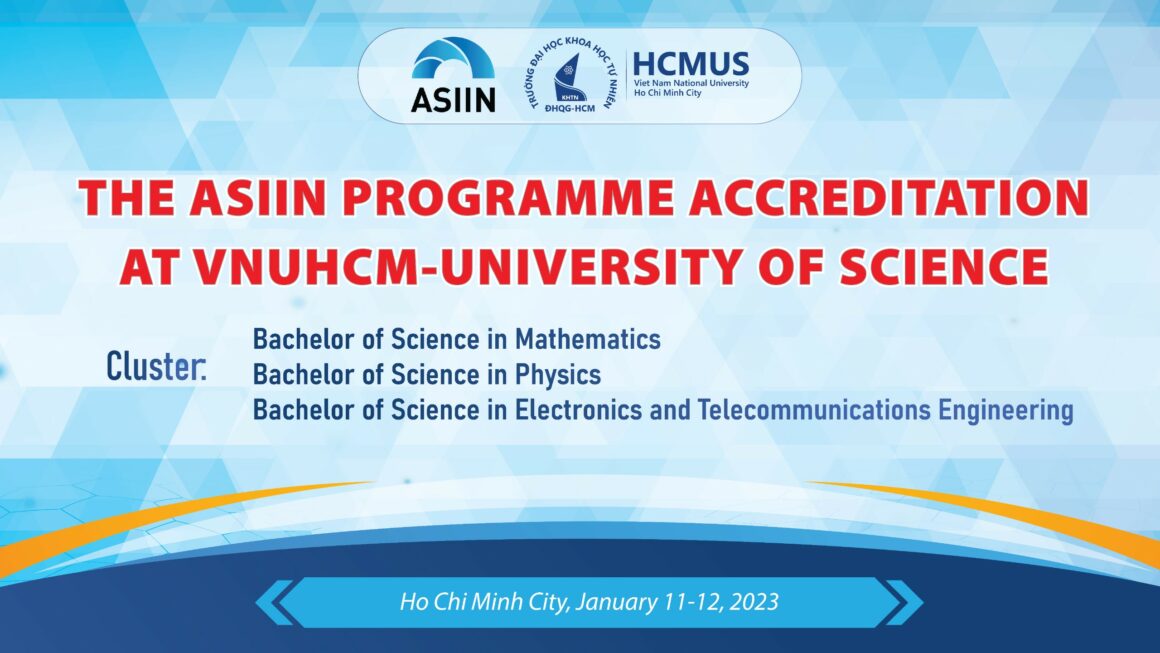In order to enhance the quality assurance of education in accordance with regional and international standards and to meet the requirements for high-quality education for learners and society, the VNUHCM-University of Science regularly conducts self-assessments and closely follows the educational accreditation requirements set by prestigious domestic and international accrediting organisations. In early 2023, three regular undergraduate programmes at the VNUHCM-University of Science underwent an official assessment according to ASIIN standards, specifically the Bachelor of Science in Mathematics, the Bachelor of Science in Physics, and the Bachelor of Science in Electronics and Telecommunications Engineering.





This marks the first occasion on which the VNUHCM-University of Science has participated in the accreditation of training programmes according to ASIIN (Accreditation Agency for Study Programmes in Engineering, Informatics, Natural Sciences, and Mathematics) standards, a reputable accrediting body within the European Association for Higher Education Accreditation (ENQA). In Viet Nam, ASIIN is authorised to carry out assessment and accreditation activities for higher education institutions and training programmes in the fields of natural sciences, engineering, mathematics and statistics, computer and information technology, science education, and teacher training. This organisation will conduct a comprehensive evaluation of the training programmes across various aspects, including output standards, curriculum framework, faculty qualifications, facilities, quality assurance, and the connections between the University, students, and enterprises.


The inspection delegation comprises experts in technology and engineering from ASIIN, based in the Federal Republic of Germany, led by D. Sc. Andrea Kern.
The accreditation process focuses on key and critical issues for evaluation: the admissions process and quality assurance entrance requirements; curriculum strategy and framework; the qualifications, quality, and expertise of lecturers; existing facilities to meet the needs and learning requirements of students; curriculum content, work, and plans to ensure learning quality; as well as the connections between the University and its students; output standards; and students’ employment or further study opportunities upon graduation. In addition to analysing the evidence files, the inspection delegation is guided to visit facilities and laboratories, and to conduct interviews with learners and teachers to ensure a comprehensive and fair assessment.
After two days of meetings, the University received positive feedback from the expert delegation regarding the strengths of the training programmes. They recommended improvements to align the programmes with international standards.
The University of Science is hopeful that the training programmes participating in the official ASIIN accreditation will receive results and recognition in the near future.



Leave a Reply